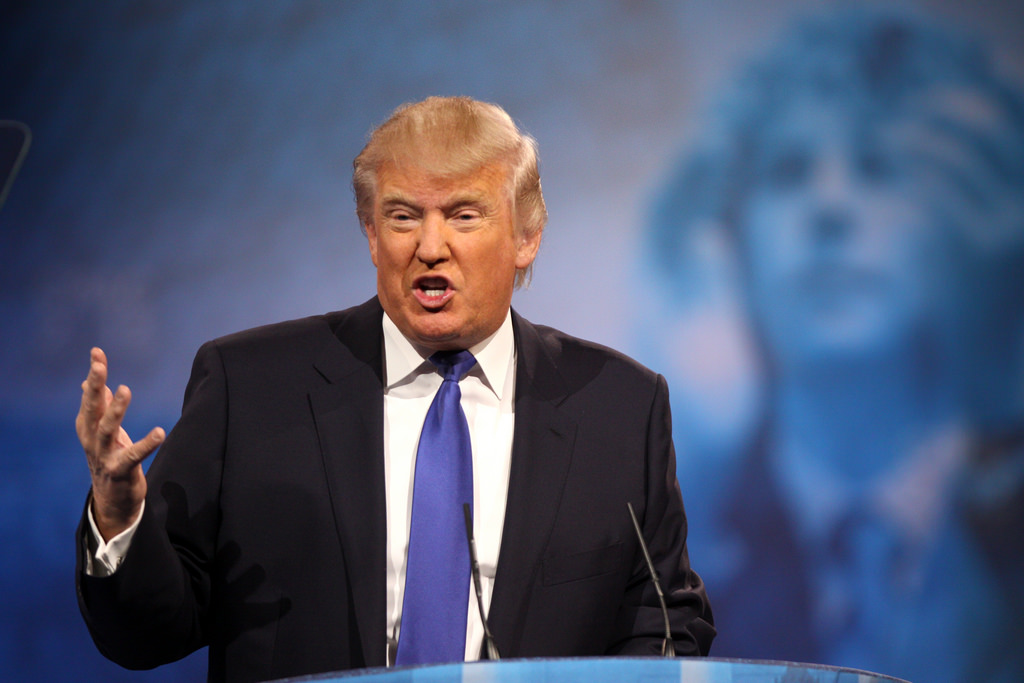by Brian Hioe
語言:
English
Photo Credit: Gage Skidmore/CC
WITH RECENT news reports that North Korea has developed the missile capacity to strike the United States, tensions are at a high in the Asia-Pacific once again. What now, for America, China, South Korea, and other countries which may be caught in the fray, such as Taiwan?
In truth, it does well to remember that although North Korea has a delivery system which can strike the United States, it may not have the miniaturized warheads necessary to deliver then to a target. Either way, it will likely take more time for North Korea to develop the capacity to fire nuclear weapons at other countries, which would require more testing. Likewise, some experts question whether North Korea’s recent missile test seemingly demonstrate that it has the capacity to hit the United States is for show, and North Korea does not actually have the capacity to fire missile with a range long enough to hit the United States.
But, in some sense, it no longer matters whether North Korea truly has the capacity to hit the United States or not, because this has become widely reported as such in international media. American president Donald Trump is now placed in a position where he is obligated to take some form of action against North Korea. If it that North Korea does not actually have the capacity to fire nuclear weapons at the United States, or would still need several tests to perfect its ability to fire missile at the United States, this may be lost on Trump, hardly a man of subtlety in international affairs.
 Photo credit: Gage Skidmore/Flickr/CC
Photo credit: Gage Skidmore/Flickr/CC
Would Trump go so far as war? Indeed, Trump has already proved willing to take human lives in order to distract from his failings domestically, as observed in past missile strikes in Syria ordered by Trump. Yet what course of action Trump will take on North Korea remains an open question. Rumors have it that stabilizing influences in the Trump administration which have attempted to keep Trump tethered to foreign policy norms such as secretary of state Rex Tillerson are considering leaving the Trump administration due to the president’s constant shifts in position and attacks on the American foreign policy establishment.
China’s inability to rein in North Korea has probably weakened China’s negotiating position, seeing as improved relations between America and China as occurred after Trump’s meeting with Chinese president Xi Jinping and the political rise of the pro-China Kushner faction in the Trump administration were largely contingent on China being able to rein in North Korea. But North Korea, which should not be treated as an irrational political actor in line with its public image as a “rogue state,” realizes that the threat of nuclear weapons are its main means of making its voice heard in the international community. Accordingly, it seems unlikely that North Korea would prove willing to let go of its nuclear weapons even for the sake of maintaining relations with its only ally, China.
The options the Trump administration has to counter North Korea are limited beyond some kind of sanctions on North Korea, offering kickbacks for North Korea agreeing to dismantle its nuclear weapons program, banking again on China to hold North Korea in line, something which already failed, or declaring war. Again, the real danger with the Trump administration is that the Trump administration has a demonstrated history of playing much more to public image than to reality, and so a miscalculated reaction by the Trump administration is highly possible. We observe this, for example, with the Trump administration hoping to scrap past agreements with Iran that have proven successful in leading Iran to back away from its nuclear ambitions, this out of anger over the public image of America making deals with Iran, and anger at Rex Tillerson and the State Department for attempting to sidestep the Trump administration to maintain the past status quo of American foreign affairs.
This has, in fact, led some to contemplate whether the Trump administration was considering war with Iran, with the view that only regime change would eliminate the threat of Iran. At present, many also are contemplating whether the Trump administration is contemplating war with North Korea over North Korea’s missiles. Both issues, then, have become yoked together in a strange way, although not without precedents going back to George W. Bush’s “Axis of Evil” formulation.
Surely, the Trump administration does not wish to wage war on both Iran and North Korea, something which probably would prove deleterious to American global power? One wonders. Unlike past administrations, the Trump administration really has no long-term thinking in terms of the maintaining the American empire and American global reach.
Either way, the Trump administration is as unpredictable as ever, reports from the Department of Defense suggesting that many in the Department of Defense became panicked after Trump attempted to unilaterally declare a ban on transgender individuals in the military on Twitter, something which actually had no binding legal effect, seeing as the phrasing of Trump’s first Tweet was vague enough to suggest that Trump might actually be planning on launching nuclear weapons at North Korea using the “nuclear football” which accompanies the American president at all times and nine minutes passed until Trump issued his second Tweet clarifying that Trump was hoping to ban transgender individuals from the military.
Again, the American president has unilateral authority to declare nuclear strikes and, at the end of the day, is commander-in-chief of the American military. Members of the military have, in fact, reiterated that they are duty-bound to carry out his orders, no matter what they are, and it would be blind faith banking on members of the military to defy Trump’s orders. Dangerous times are ahead, then.

